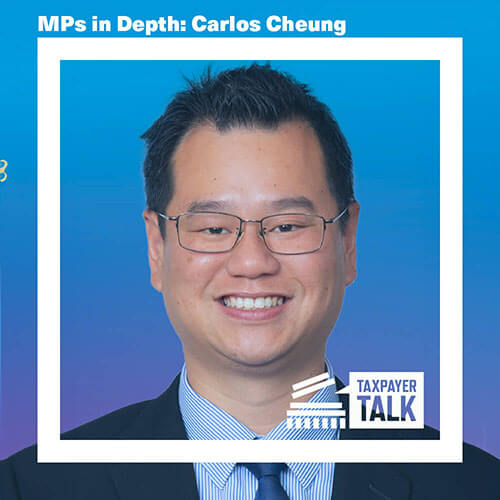1. Carlos Cheung: From Landlord to Lawmaker
From Rental Profiteer to Minister of Displacement
Property First · People Last · A Quiet Hand in the Housing Crisis

Current Portfolios
- Member of Parliament for Mt Roskill (National Party)
- Member, Health Select Committee
- Member, Transport and Infrastructure Select Committee
In his maiden speech to Parliament, Carlos Cheung spoke of “kindness,” “integrity,” and his “heart for service.”1 He presented himself as a humble, values-driven figure — someone who understood financial discipline and human decency. But speeches are not legislation. And what followed was a bill that tells a different story.
Cheung is the author of the Auckland Council (Auckland Future Fund) Bill, which enables public assets like Auckland Airport shares to be moved into a semi-opaque fund — shielded from referendum requirements, detached from community oversight, and exposed to asset erosion via simple supermajority votes. It is a model built not for public guardianship, but for commercial flexibility. In short: kindness in tone, privatisation in practice.
Before politics, Cheung ran property management companies and made his income as a landlord. Now in Parliament, he advances laws that reduce democratic safeguards on major public assets. This is not a shift in values. It is a continuation — from private accumulation to public conversion.
1 Source: 1News, 30 Jan 20242. The Auckland Future Fund Bill: A Blueprint for Asset Stripping
One of Cheung’s earliest legislative acts was the Auckland Council (Auckland Future Fund) Bill — Local Bill 118–1. Tabled in 2024, it establishes a trust-like structure to manage public assets “with the intent of maintaining or increasing the real value of its capital over time” (Clause 8(b)).
Formal Opposition Submitted By: Ukes Baha | Read the full opposition
- Enables the transfer of Auckland Airport shares into an opaque fund
- Overrides public safeguards by enabling Clause 11 – allowing a 75% Council vote to authorise distributions even if it reduces the capital
- Exempts the Fund from Section 97 of the Local Government Act — removing public referendum requirements on asset disposal (Clause 9(4))
- Fails to include Treaty protections, ethical investment criteria, or transparency mechanisms
While framed as a tool to “protect intergenerational assets,” the Fund's mechanisms — outlined across Clauses 3 to 12 — reveal structural pathways for soft privatisation.
"This Bill is not a funding solution — it is a soft-privatisation gateway. It sells long-term public stakeholding for short-term political capital."
— Ukes Baha, Opposition to Government Bill (Auckland Future Fund)
Cheung presents this as pragmatic finance — but it’s a page from the property developer playbook: repackage, reframe, and offload. He isn't innovating. He's liquidating.
3. From Private Gain to Public Office: A Pattern of Self-Alignment
Cheung's financial success came not from building public wealth but from managing private property. This is key: his understanding of value comes from accumulation, not distribution; from management, not shared stewardship.
As MP, his proposals — including the Auckland Future Fund Bill — lean toward asset liberalisation, centralised control, and reduced transparency. These are not technical missteps. They are ideological moves rooted in his private-sector instincts.
4. The Lai Factor: Strategic Reinforcement Through Representation

Carlos Cheung is married to Fiona Lai, Deputy Chair of the Puketāpapa Local Board and a long-time candidate under the Communities & Residents (C&R) banner — a National-aligned bloc known for its pro-privatisation record and historic support for asset consolidation in Auckland.
Lai is widely promoted as a community pharmacist and cultural connector. Yet her alignment with Cheung and C&R reflects a broader political synchrony: one that downplays critical oversight of centralised health reform and public asset liquidation. Together, their positions normalise technocratic asset conversion through complementary political channels — national and local.
Their partnership enables coordinated policy diffusion: Cheung legislates at national scale, while Lai normalises asset ideology at the local level. Their shared alignment with C&R provides a unified front — one that has escaped sufficient scrutiny.
5. Why It Matters
Carlos Cheung’s presence in Parliament is not just about a seat flipped from Labour to National. It’s about a new kind of representative: polished, data-driven, but deeply embedded in privatisation culture. He is a broker of visibility, not a guardian of public trust.
The Auckland Future Fund Bill is not technical housekeeping. It is a tactical strike on community ownership. Its approval would normalise future asset conversions — all without public votes, Treaty grounding, or consultation.
Cheung is not simply passing policy. He is shifting the boundary of what counts as public. That boundary must not move unnoticed.
What You Can Do
- Don’t let Auckland become a testing ground for technocratic asset erosion or unchecked fiscal engineering. Hold elected officials to public account — especially those enabling permanent structural loss.
- Read the opposition to the Auckland Future Fund Bill — a strategic asset shift disguised as financial reform.
- Spread the word: Share this exposé on Carlos Cheung and disrupt the silence.
- Don’t be distracted by complex branding or polished messaging. Track the pattern. Share the evidence. Defend the future of public ownership.
Every case documented strengthens public memory—and demands accountability.
🔙 Back to APIAPE Index